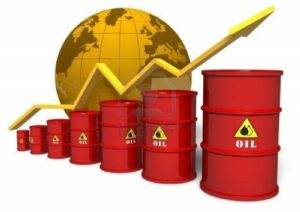Special topics
 The price of the OPEC basket of fourteen crudes stood at $40.57 a barrel on Wednesday, compared with $41.08 the previous day, according to OPEC Secretariat calculations.
The price of the OPEC basket of fourteen crudes stood at $40.57 a barrel on Wednesday, compared with $41.08 the previous day, according to OPEC Secretariat calculations.
The new OPEC Reference Basket of Crudes (ORB) is made up of the following: Saharan Blend (Algeria), Girassol (Angola), Oriente (Ecuador), Rabi Light (Gabon), Minas (Indonesia), Iran Heavy (Islamic Republic of Iran), Basra Light (Iraq), Kuwait Export (Kuwait), Es Sider (Libya), Bonny Light (Nigeria), Qatar Marine (Qatar), Arab Light (Saudi Arabia), Murban (UAE) and Merey (Venezuela).
Meanwhile, Wall Street Journal reports that the fight for market share among the world’s biggest oil producers is still raging, pushing output from OPEC members close to an all-time high in July and suggesting the group is not yet seriously considering a meaningful curtailing of production.
Output by Saudi Arabia, OPEC’s key member, reached a high last month, as part of a broader ramp-up by the Organisation of the Petroleum Exporting Countries, according to OPEC data published Wednesday. Led by the kingdom and Iraq, OPEC members’ July crude production rose by 46,000 barrels a day from June, to 33.11 million barrels.
The increasing level of OPEC production, combined with the latest U.S. data, shows that the global oil market remains oversupplied.
U.S. crude oil futures for September delivery fell $1.06, or 2.5%, at $41.71 a barrel on the New York Mercantile Exchange on Wednesday after the Energy Information Administration said that domestic inventories of crude oil and petroleum products rose last week to a record.
Oil markets have gyrated in recent days. OPEC, which controls more than a third of the world’s oil supply, on Monday announced it would hold informal talks in Algeria next month, after which the market rallied briefly—but then gave back all those gains.
Analysts say that an OPEC deal to freeze output growth might be easier to achieve on paper, since nearly all producers are pumping flat-out already and can’t likely produce more. But such an agreement wouldn’t change the underlying dynamics between supply and demand.
“Even if there is a freeze, it doesn’t amount to anything other than giving a boost to market psychology,” Michael Wittner, chief oil analyst at Société Générale, said of the chatter among OPEC members.
Two years into a price rout that has bruised the world’s biggest oil companies and energy-exporting economies, sporadic efforts to restrain OPEC production have been driven almost solely by members feeling the most pain from the price declines, and thus least likely to actually restrain their oil production.
Source: OPEC with WSJ files